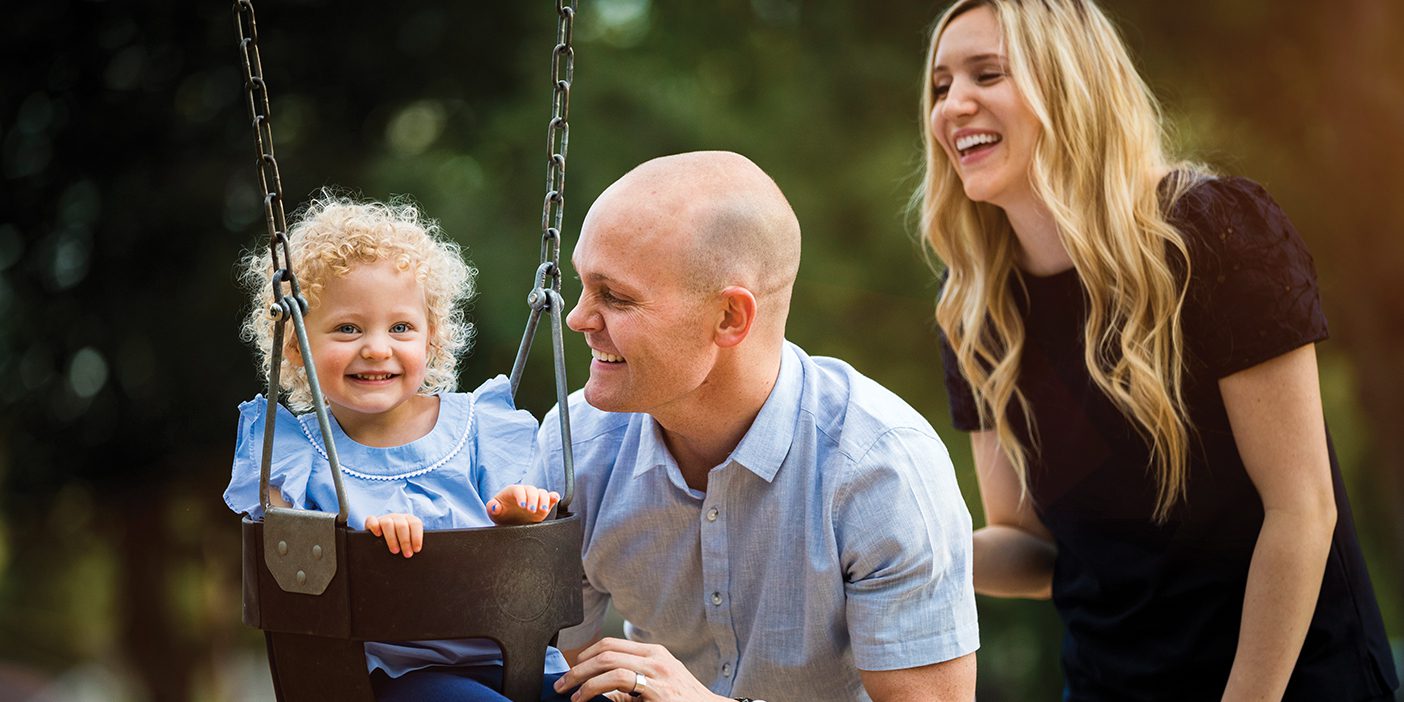M. Sue Bergin
Featured
The Horrors of Wedded Ambivalence


Family
The Horrors of Wedded Ambivalence
Researchers use scary movies to study fear and support in marriage relationships.

Family
Toddlers, Tantrums, and Tech
Helping kids manage their emotions well means media shouldn’t be the go-to pacifier.

Family Focus
Breaking the Cycle of Childhood Trauma
With help and counseling, fathers can heal from adverse childhood experiences and become better parents.

Family
Why Autism Diagnoses Matter
Identifying autism sooner—especially in girls—could improve and even save lives.
Beginning with their own example, parents can teach their children to be loving and inclusive.
When earning and learning and living all happen in the same space, boundaries can blur. Here’s what to do about it.
With so many unknowns, a BYU dean—and household finance expert—shares pointers to help gain stability.
For empty-nest couples, keeping a marriage strong—or reviving it—calls for new strategies and renewed commitment.
As they go through tough experiences, teen athletes gain resilience that makes their lives better.
Speak to yourself in loving ways and talk about yourself with others as gently as you would speak about another person.
Armed with data from a new BYU study, parents can help teens navigate their first romantic relationships.
How to design quality, values-added summer activities with your family.
The more parents discuss sex with their kids, the less likely the children are to engage in risky sexual behaviors.
How can you tell if your child is suicidal? Here are signs to watch for.
Need a quick therapy sesh to treat anxiety or depression? Grab your phone.
Why do so many well-intentioned service efforts fall short? BYU experts offer ideas on how to make a real difference.
Thoughts about divorce are common—perhaps even inevitable—and don’t mean the end of a relationship.
The struggle is real for millennials, who grapple with how to prioritize education, career, and marriage.
More women are working outside the home—but they are still doing lion’s share of housework. Why?
By following basic financial principles, families can land big returns—in peace and joy.
How do teens build self-control? First, they have to grapple with adversity, says BYU research.
Given time and space, grieving families can strengthen bonds.
A so-so marriage can create emotional distress and affect blood pressure.
After suffering an aneurysm, Katy and her husband had to adjust their expectations for themselves and their children.
Parents can’t always change perceptions, but they can work to create warm and open family relationships.
Focusing on cues and reading to kids earlier increase their cognitive development and better prepare them for school.
Families of diversity must be ready to examine motives, build identities, and embrace differences.
Close stepfamilies are created with communication and adaptation.
When dads are more involved with kids, both moms and dads are happier.
To take flight on their own, young adults need a little air space.
Research shows increased marital satisfaction and less parenting stress are just some of the blessings of blogging.
BYU scholars have unearthed gems of wisdom that help families thrive. And they’ve only just begun.
BYU researchers show how grandparents can influence their children’s children for good.
Families should know the potential risks, get support, and expand their faith.
Fostering family relationships and traditions may be key to strengthening your teen's faith.
Intentionally living five key principles can help your family flourish.
Psychologically coercive parenting approaches can be as harmful to a child’s psyche as physical coercion.
Savvy parents connect with their children to build powerful family firewalls.
Studies show parents with an authoritative style are more effective at supervising and supporting children.
Bryan Sudweeks' ideas are an amalgam of sound financial practices and gospel principles.
BYU’s Chair of Religious Understanding shares insights on teaching children to value other religions.
A study interviewed 36 single fathers about their experiences raising children on their own.
Giving kids an incentive for any number of good things can help establish healthy lifelong habits.
Couples can strengthen their relationships with books, Web sites, and other “self-directed” approaches.
Sharing the evening meal can benefit families beleaguered by long work hours.
With only so much time to go around, parents often spend 3,000 hours less with their second child.
Young adults today don’t feel like kids or adults. Here’s how parents can help them through an extended adolescence.
Steps we can take to increase family harmony and foster spiritual growth.
A BYU professor offers five signs of materialism and four strategies for change.
Text, blog, record, or snap—it takes just a few clicks to connect with your family.
BYU researchers offer strategies to combat the “mean girl” phenomenon in children and youth.
As coaches and models, parents can help children learn about others’ feelings.
A delinquent child may be passing down more than just used clothes to younger siblings.
BYU researchers bridge the gap between the ivory tower and the marketplace.
To successfully watch over another, caregivers must also watch out for themselves.
The new Gordon B. Hinckley Alumni and Visitors Center will provide an inviting front door to BYU’s campus.
An award-winning professor, a female chemist, and a Catholic at BYU, Juliana Boerio-Goates is used to standing out.
BYU researchers say there is much couples can do to revitalize their marriage.
Three considerations can help adults determine whether adoption is right for them.
Parents can create opportunities for their shy children to conquer their fears.
BYU research shows how families can be strengthened through experiencing adventures together.
From former steelworkers, BYU professors and students learn the high social and personal costs of blue-collar job loss.
With two award-winning books, English professor Chris Crowe refuses to let memory of the murder of Emmett Till fade.
As he takes on a new role as BYU President, all of his previous roles have combined to make him the perfect fit.
The BYU Shakespeare Fellowship reaches out to the community through Shakespeare-related activities.
Terry Warner has conducted a lifelong quest to understand the human tendency toward self-deception.
Studying comics and pop culture, a BYU humanities professor examines the role of satire in society.
Teaching 35 languages, BYU provides a host of opportunities for achieving fluency.
Consistency in giving is important to the progress of the work.
The university rolls out a new approach to its donation program and outlines how it will be even more beneficial.
BYU researchers offer support on raising children with disabilities.
An interdisciplinary BYU team seeks to help families raising children with disabilities.
A team of BYU chemistry researchers has engineered molecules that may help prevent catastrophes in the future.
Smith's art is rooted in his sense of place - Alpine Utah, his childhood home, and Denmark, where he served a mission.
Melven's passion for her research topic is evident, as is her love of children.
An alliance of BYU professors is hoping to help with a novel approach to land-use planning that uses computers.
BYU chemistry professor Milton L. Lee has 10 patents thanks to his ability to solve problems.

